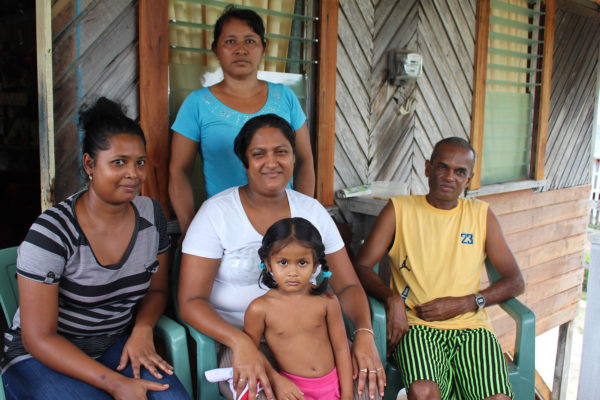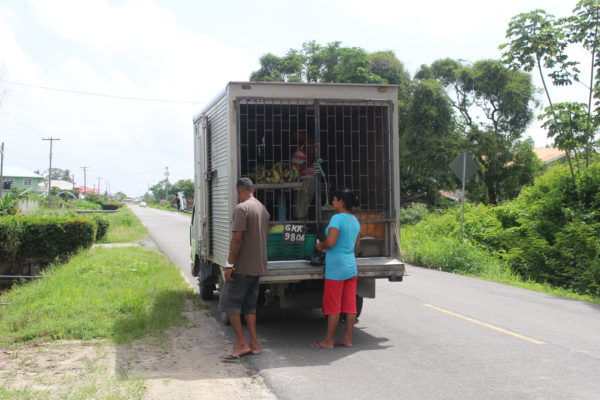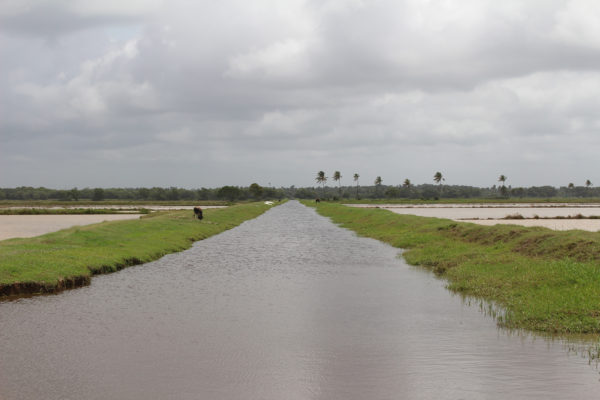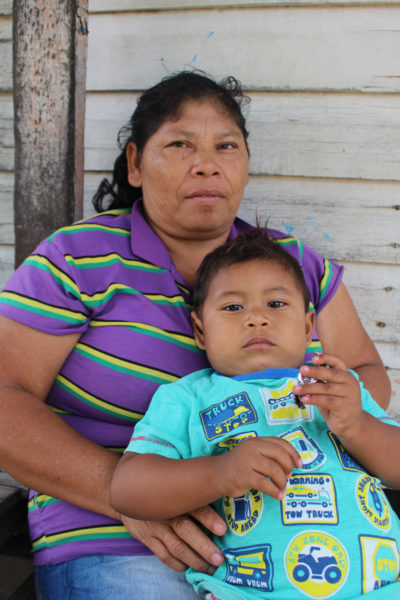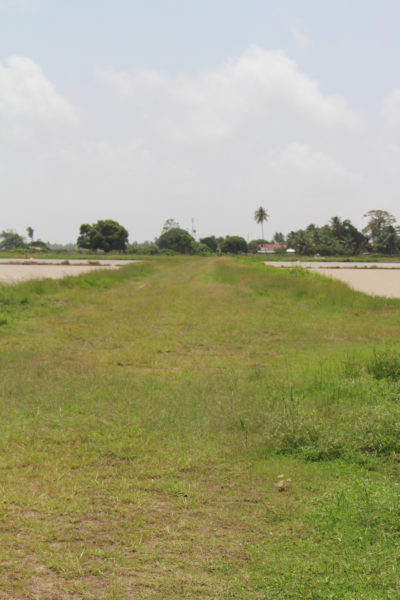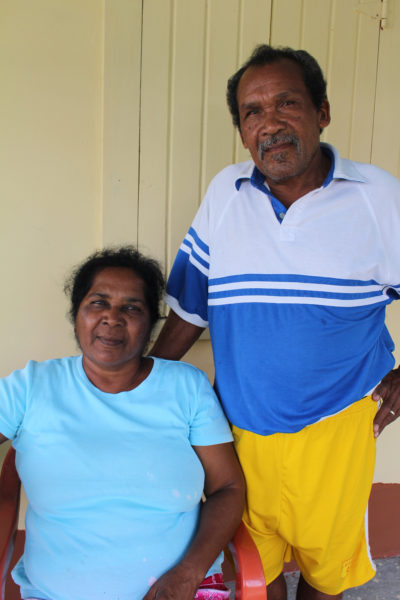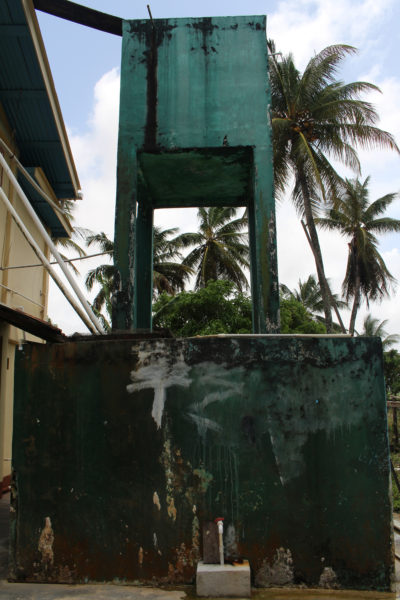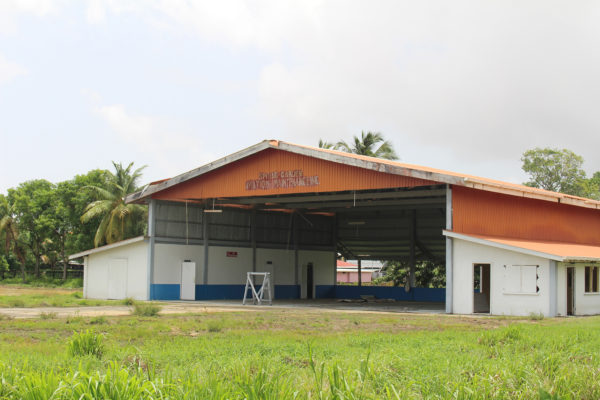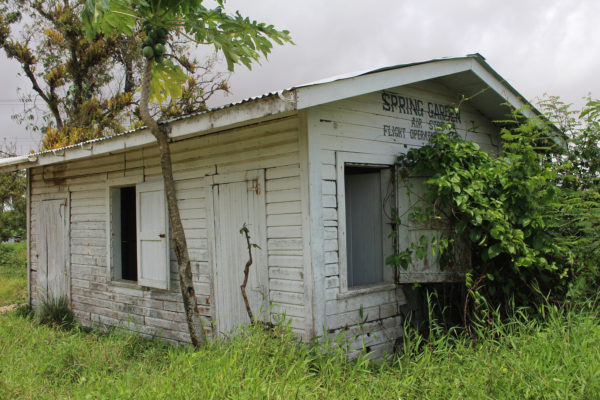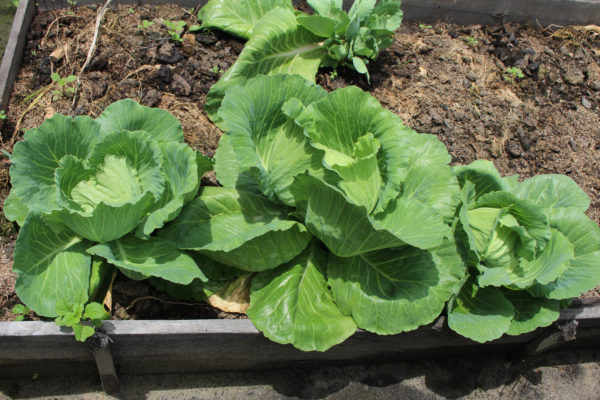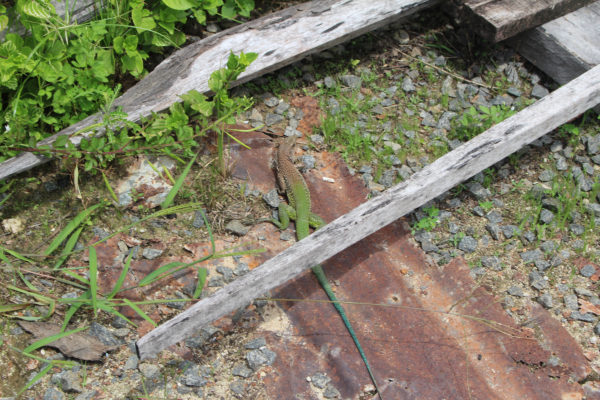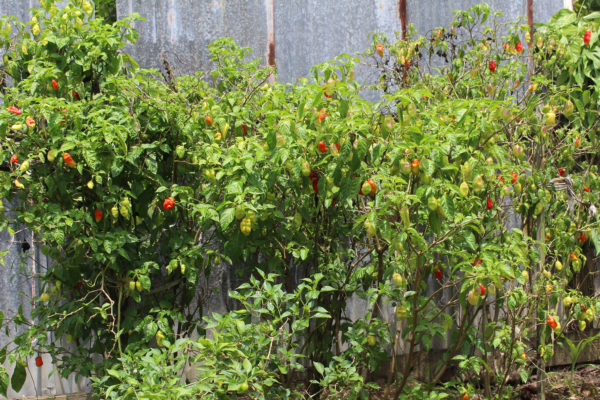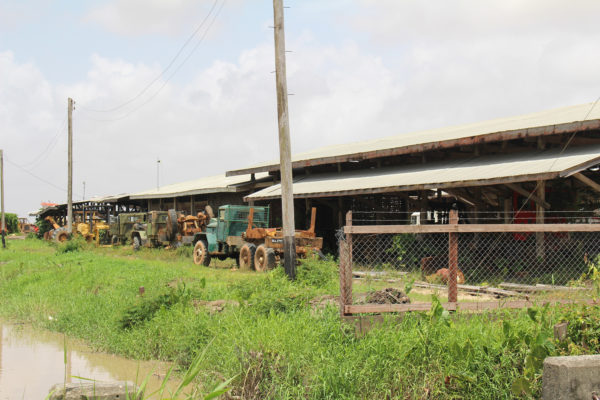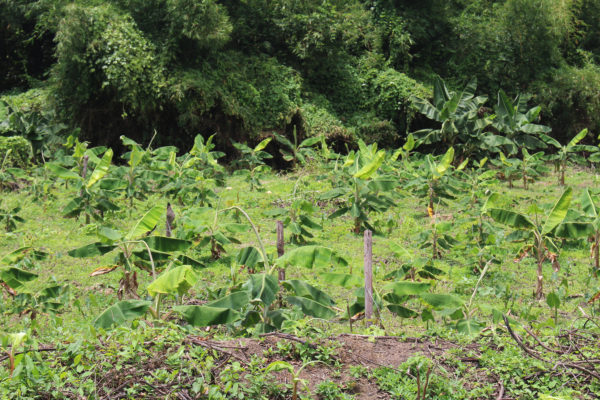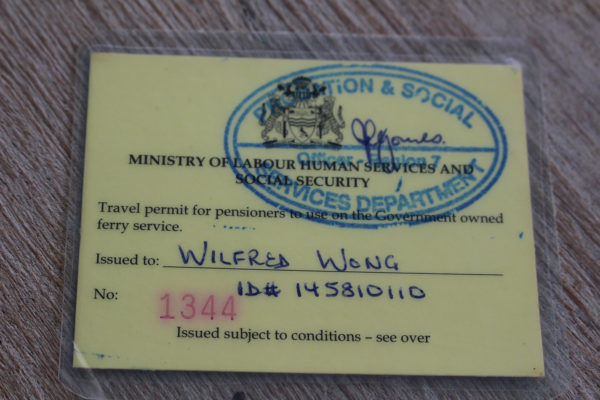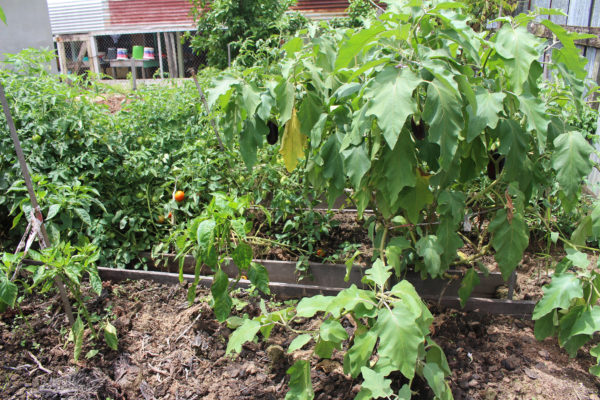Photos by Joanna Dhanraj
Spring Garden is one of the many villages situated on the Essequibo Coast. The village is home to approximately 500 persons with families such as the Laltoos, the Ramnarines, the Arjunes, the Doobays and the Ramnauths said to be among the first settlers many decades ago.
Geeta Sahadeo, a daughter-in-law of the Laltoos, was at her relatives, enjoying a family get-together with a visiting relative.
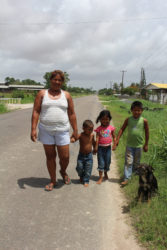
“I live here like 18 years now,” Sahadeo said. “I used to live in Aurora before but moved when I got married. Spring Garden was nothing like this when I come here. It had mud road and lots of bushes with like about ten houses. That time was hard because remember it didn’t had so much transportation and then the road was bad too. When I come here it had pipes in the yards but most times they didn’t work. Some seize up and the few of them that work only gave water when the pump station working. But that time people never used to care about pipes. They used to get water from the front trench and the back trench; that we used to wash, bathe and water plants with. The rain water is what we used to drink and cook with. Now day and night, water coming.”
Beyond the houses are flooded rice fields and nearby an airstrip running between the rice fields and the back trench that Sahadeo spoke about.
“The airstrip was once functioning but only a few weeks ago they started to move things out of the building [Spring Garden Maintenance Aviation Inc]. The airstrip was privately owned and flights were mainly for emergencies. I think the last time they used the airstrip for flying was a month ago, so is like a week or more they close now,” she said.
According to the woman, persons wishing to get to Georgetown without having to use the boats could board a flight at the Kayman Sankar Airstrip situated in Hampton Court.
While Sahadeo spoke a siren wailed in the distance as an ambulance sped by, likely to get its patients on one of the speedboats at Good Hope.
Inside the house the television was on and Sahadeo’s relatives said they could catch about ten television channels, but not without a booster attached to the antennas on the roof. Without the booster they only get Channel 8, which beams from a television station situated at Charity, Essequibo Coast.
The village, Sahadeo said, is home to mostly rice farmers but among them are doctors, teachers, nurses and a number of housewives; Sahadeo is a housewife.
The lumber yard and gas station in the village provide work for a few villagers, she said. According to the woman some persons would have to travel as far as Anna Regina if they’re working at one of the malls there. As the only town on the Essequibo Coast, Anna Regina has many job opportunities but for Sahadeo and many others the distance is too much and the $1,000 minibus fare would take up most of the wages.
“If the government can open maybe a juice factory or something like that here, it would be good. It got plenty mangoes, cashews and cherries wasting. It got plenty things you can make from fruits, like juice and jam. It got plenty land they could buy and housewives like us can have jobs instead of staying home or having to travel far,” she said.
Sahadeo’s daily routine would see her send her husband and children off to work and school, then she would rush to get her chores done before settling on the couch to watch Indian soap operas. After lunch, she would catch a quick nap then get up to prepare dinner and wait for her family to return home.
“Spring Garden got good people. It’s really quiet. Nobody ain’t really theifing or making noise. Here you can go out and leave your house open,” she said.
Many of the villagers are related, she said. “The Laltoos and the Ramnarines [are] the two biggest families living here,” she added.
A relative led the way to the back of the house next door to show off the peppers, boulangers and tomatoes she had planted. A frightened green lizard scurried into the grass, and Sahadeo said that particular reptile was abundant in Spring Garden.
A little way off, Danani Miguel sat on a wooden platform with her grandson looking out. Miguel was born in Moruca and spent most of her childhood there. After getting married she moved to live in Wakapoa with her husband, but relocated to Spring Garden just about seven years because of hardship in Wakapoa.
“My husband wasn’t getting work that side. All we could have done was farm and sell. It had enough farms, yes, but they were really far away so we decide to come and live out here. He working here as a farmer. The farming is better out here,” Miguel said.
Moving here has not only provided an easier income for the family but has made attaining an education easier for her children as well. “I like that the school is nearby so the children can walk to school and back in the afternoon. Where we used to live in Wakapoa, the children then used to got to take a boat and paddle to school. It ain’t good for the children them to got to paddle every day. It used to take like two and half hours for them to reach to school. They used to left like six and reach for eight thirty and if they don’t hurry and paddle they reach after school call,” she said. Paddling to school is foreign to her younger and shy children who peeped from the window as we spoke.
According to the woman, it was her older children who faced the brunt of the paddling and her younger ones heard only tales of the difficult times they once faced. “So one good thing about Spring Garden is the school,” she added.
She also likes the fact that the shops are situated close by.
However, she said people were kinder in Wakapoa. “Some people in Spring Garden okay; some not so okay. In Wakapoa got kinder people,” she said.
The farm her husband works on provides vegetables for the family.
The woman said she’s been renting since she moved to Spring Garden and applied some time ago for a piece of land, which she said she hopes she doesn’t have to wait too long to get.
Looking out at the bushy drain, she said, “We need better drainage though; cause you know if you want plant lil greens at least it ain’t guh dead out.”
Just at the beginning of Spring Garden lives a happy couple, the Wongs. When the World Beyond Georgetown called at the gate, a smiling Selena Wong approached. “Is the same thing I telling he; it got to be Stabroek News,” she said. Leading the way, she returned to where her husband, Wilfred, was seated saying, “I tell you it got to be Stabroek News.”
Wilfred gave a welcoming smile and pointed to the newspaper lying on the bench; he said he had just finished reading about Good Hope.
The Wongs have only been living in Spring Garden a year now. Before they lived in the interior, in a village situated in the Mazaruni River called Itaballi.
“We lived there for fifteen years. We had a house and a business but due to the business not flourishing so well, we left,” Wilfred said.
“I am originally from Tapakuma Lake/ St Denys Mission. My wife is originally from Good Hope. Both of these villages are found along the Coast so moving back to the Coast is like coming back home.”
Selena said, “Coming back here is like coming back home and not just that alone; we getting ‘age-able’. Since most of our relatives live on the Coast we thought it’d be best if we come back here. Living in Itaballi is sheer boat movements. If you want to reach the closest hospital, which is Bartica, you had to take a boat and pay a lot of money for transportation too.”
Asked if they use the speedboat service to get to Parika. Wilfred replied, “We use the ferry. I am a pensioner so I just show my ticket at the ticket booth and travel free.” Not a pensioner as yet, Selena pays a small fee of $360 to travel.
According to Wilfred, he attends the Universal Church once a week which is situated all the way in Anna Regina. His wife goes sometimes three times a week.
The Wongs have a small kitchen garden situated at the back of the house which they say takes care of the “greens”. Wilfred also works as a security guard at the sawmill.
“The people here are very good. It’s a peaceful place,” Selena said.
She quickly adds, “You’re not paying a big set of money for transportation. If you don’t have the money and you want a drop to the hospital, they drop you. Whenever I get the money I pay them; that is that. Really nice taxi drivers we have here. I don’t know how other people see the taxi drivers here but I see them very good. We don’t find any problems living here; very good place.”
Wilfred however sees room for development. “The road is too narrow. When the steamer come in, a lot of vehicles on the road. One day I nearly get knock down.
“We need more street lights also. The street lights only reach up to Good Hope plus getting work here is really difficult. Most people got to work in the rice farms or go into the interior to work,” he said.
